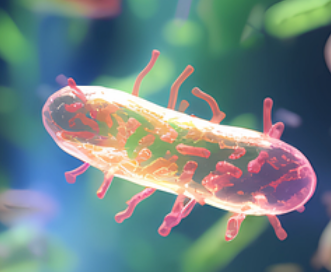-

Protecting Public Health Through Rigorous Water Testing
Bhubaneswar, May 31 – Authorities across Odisha have intensified water quality monitoring to ensure safe and clean drinking water reaches every household, especially with the onset of the monsoon season. The Public Health Engineering Organisation (PHEO) along with local municipal bodies is conducting routine sampling and testing of water sources, including overhead tanks, borewells, and…
-

Understanding Turbidity in Water Testing: The Importance of Water Clarity
Water is vital for life, and ensuring its quality is crucial for both human health and the environment. One key measure of water quality is turbidity, which indicates how clear or cloudy the water is due to suspended particles. These particles, which may include dirt, silt, microorganisms, or pollutants, can affect the aesthetic and safety…
-

Ensuring Safe Drinking Water: Understanding and Detecting Chloramine
Chloramine, a compound formed by the combination of chlorine and ammonia, is widely used as a disinfectant in municipal water systems. While chloramine effectively kills harmful bacteria and pathogens, it can have notable impacts on water quality and health. For those who rely on municipal water supplies or private wells, detecting chloramine in drinking water…
-
Water Quality at Maha Kumbh: A Risk to Devotees
By – Ashwin Bhadri – Founder and CEO of Equinox Las The Maha Kumbh is one of the largest religious gatherings in the world. Millions of devotees throng to take a dip in the holy river, believing it will cleanse them of sins and bring spiritual benefits. However, recent reports have raised concerns about the…
-

The Importance of Water Testing Parameters for Office Borewell Water: PH Level, Turbidity, TDS, Hardness, Calcium Hardness, and EC
Water testing is a crucial procedure to ensure the water drawn from office borewells is safe, clean, and suitable for various uses. Borewell water, while often a cost-effective solution, can contain impurities and varying characteristics that require regular monitoring. This article covers the importance of water testing for parameters such as PH level, turbidity, Total…
-

Water Testing in Aquaculture Farming: A Crucial Aspect for Healthy Aquatic Systems
In the rapidly growing world of aquaculture farming, ensuring the health of aquatic organisms is paramount. One of the most critical components in managing a successful aquaculture system is water testing. Aquatic environments are highly sensitive to changes in water quality, which can directly impact the growth, reproduction, and overall well-being of farmed species. Thus,…
-

Comprehensive Guide to Water Testing for Bore Well Water in the Steel Industry
Water testing is an essential procedure in the steel industry, especially when using bore well water for industrial operations. The bore well water in steel plants serves as a crucial resource for processes such as cooling, washing, and other production requirements. Regular water testing is needed to ensure that the water meets the necessary standards…
-

Water Testing for Gate Systems: Ensuring Efficiency and Longevity Through Comprehensive Analysis
Water testing is essential in ensuring the optimal performance and longevity of gate systems used in various applications like dams, sluice gates, weirs, and flood control barriers. Gate Systems are constantly exposed to the environmental elements, and water quality can significantly impact their functionality and durability. Here, we will explore why water testing is crucial…
-

Ensuring High Quality Water Testing for Carbonated Drinks Production: Key Parameters to Test
Water quality testing is fundamental in carbonated drink manufacturing, impacting not only the flavor and consistency of the final product but also the efficiency of the production process. Borewell water, a commonly used source, requires regular water testing to ensure it meets the required standards. We will explore how testing key parameters such as PH,…
-

Water Testing for E. coli: Implications, Challenges, and Recent Progress
Escherichia coli (E.coli) is a bacterium commonly found in the intestines of humans and animals. While most strains are harmless, certain strains, like E. coli O157:H7, can cause serious gastrointestinal diseases and other health problems. The detection of E. coli in water serves as a critical indicator of potential contamination by harmful pathogens, particularly those…
